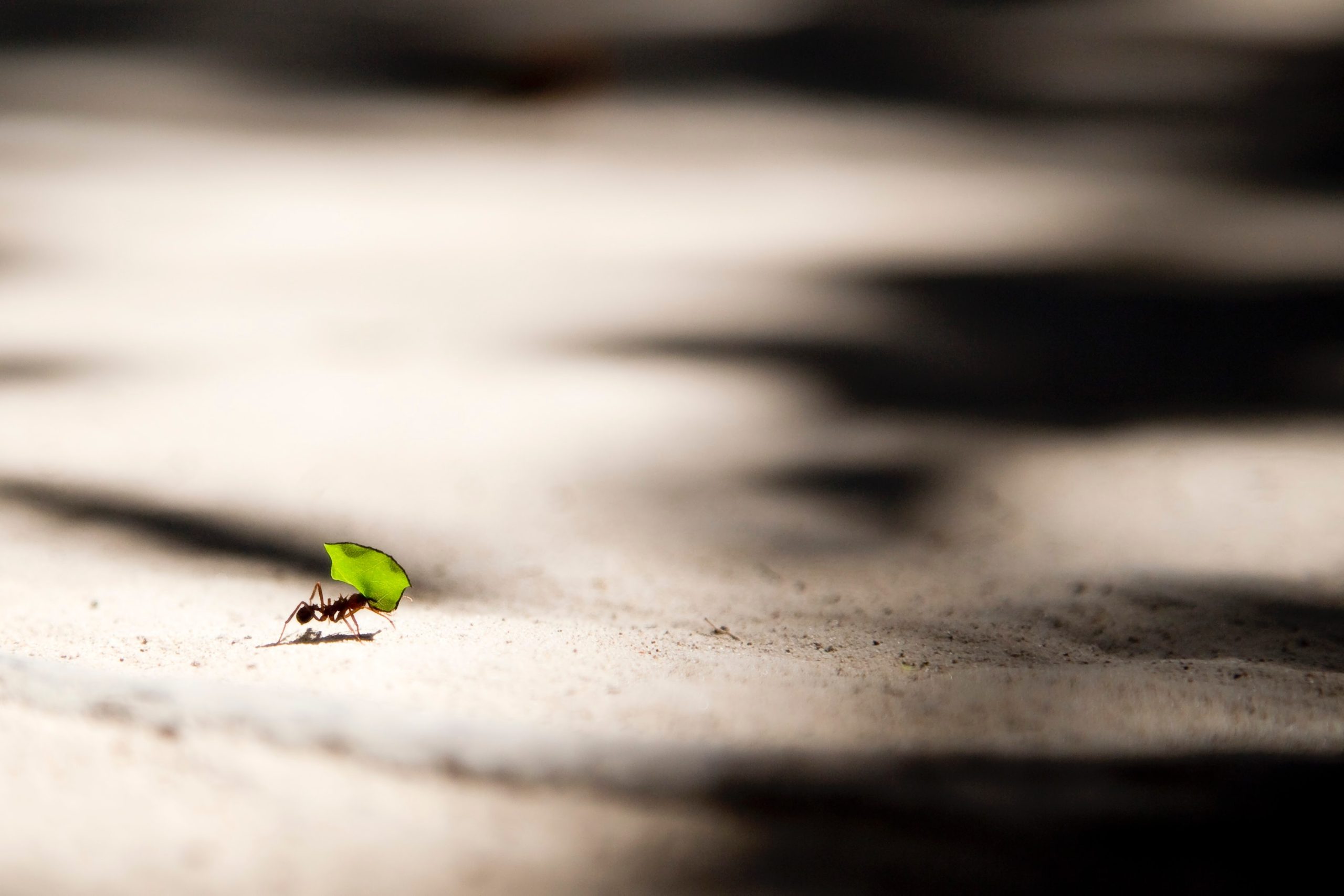
When Comparison Derails You From Doing Your Own Good Work (a Message for Writers who Use Instagram)
I recently received a question about boundaries on Instagram from a fellow writer. She asked what boundaries I had in place in order to keep myself from comparing with others and falling into despair. I answered her briefly through a direct message, but it’s a topic I’ve wrestled with for the past eighteen months, one I think is a struggle for others, so I wanted to address it here.
We can’t make hard and fast rules for boundaries in our use of social media. What one person struggles with on Instagram may not be a struggle for someone else. So, rather than sharing my specific boundaries, I thought it might be helpful to make some distinctions about social media usage, explain the biggest comparison issue I face, how it sometimes leads me to despair in my writing work on Instagram, and then share some helpful questions I use to keep my heart motives in check in order to do the work I do on Instagram.
Creator vs Consumer
We enter social media as either a ‘consumer’ or a ‘creator’ Anytime we’re scrolling through, we’re consuming. If we post something, we’re functioning as a creator. Both consumers and creators will probably struggle with the temptation to compare either their lives or the performance of their posts with someone else’s, and we all slip back and forth between these two roles.
For the most part, I consider myself a creator on Instagram. I log in and work hard to create a post or series of stories that will educate, inspire, encourage, or entertain someone. In addition to trying to provide good content within Instagram, I’m also producing content outside of Instagram. I write articles for my own website, sometimes others, and there are specific writing goals I’m working towards. So when I create content on Instagram, I hope it will be helpful to whoever sees or reads it. But I also hope people will move away from Instagram to read my blog, other articles I write, or sign up for my monthly newsletter. Building a platform is necessary for the work I want to do in the future.
Part of my job as a writer is to understand how social media is used in reaching an audience, marketing and eventually sales. Because of this, I took a course on how to effectively use Instagram, I pay attention to the ways different writers use their presence within Instagram, and I seek to be intentional with the images and words I share in that space. I’ve learned so much from watching other writers, and I frequently adjust my own work from what I learn. This requires a healthy form of comparison.
But healthy and good things in life have the potential to become harmful.
Effects of Unhealthy Comparison
Healthy comparison can quickly morph into harmful comparison. We start to compare numbers of likes, followers, and mentions. We wonder why our posts don’t get shared as much as someone else’s. We feel left out when people in our niche seem to rally together without including us. These unhealthy comparisons can lead to feelings like discouragement, anger, envy, irritability and self-focus. We want success from our efforts, we want to make an impact, and we want to reach people with our message. When someone else seems to be doing a better job with more likes, followers, and shares, we can start to despair.
I can confess, repent, and move on from the list of sins above. When they come up, I do. I step away from creating for a time — sometimes a day, sometimes longer — and then get back to work. The cycle will probably repeat itself because I’m still a sinner in need of God’s constant work in my heart.
But the problem for me with more long term effects, has been an inability to do the work I feel called to do.
Despair resulting from harmful comparisons can derail us from doing our own good work.
When our progress feels slow and our reach too narrow, we can begin to question our ability as a writer. We second guess our writing style and the content we share. We fear saying the wrong thing so we say nothing, or we fear missing out an opportunity so we say something we shouldn’t, or we say it prematurely. Instead of learning from others to improve our writing, we can feel tempted to quit.
For some, quitting Instagram might be necessary. If it’s too great a temptation or becomes a place of addiction, by all means, stop using it. I’ve thought about deleting my account on more than one occasion; my husband can testify to my fickle thoughts. But I keep coming back to the reality that women are scrolling on Instagram daily, including the women I hope to reach through the words and images I share. They’re looking for all kinds of things, so why not engage in this space and add to their feeds with messages of truth and hope?
So, I’m not leaving Instagram. I might post every day. I might not. I’ll share images of my family, the winter sunrise, a door with chipped paint, flowers in my yard, and random moments in my kitchen. Sometimes I’ll microblog and sometimes I’ll post a few sentences. There’s freedom to engage however we see fit.
But I’m also not going to quit writing. Believe me, the temptation has been strong. When I fell hard into the harmful comparison trap, I started to lose my voice as a writer — my own way of communicating truth through stories and personal experiences in order to point people to Jesus. I couldn’t finish an Instagram post or blog post draft without hearing the many critics in my head yelling at me, “Are you sure that’s true?” “Be careful how you phrase that because I don’t think you’re sharing the gospel” “I think you’re being preachy, you better tone it down and hook with a better story.” “Uh, you’re probably bordering on too relevant with that illustration.”
It’s taken a long time, a lot of prayer, and a number of conversations with my husband for me to sift through the rubble from this trap. I’m still recovering — slowly — but we’ve both seen progress in the right direction.
I believe there are other writers on Instagram who struggle with these same thoughts and who are also tempted to give up writing. A work you love. A work you feel wired for. A ministry that feels small, but is from the Lord.
Please, don’t quit. There is room at the table for more writers. We need people who are sharing their stories, writing thoughtful words, and offering up truth and hope to a broken world.
I love these words from Jonathan Rogers, that I received recently in one of his Habit Weekly emails:
“If you’re a writer, forget about your place in the hierarchy. You don’t have a place in the hierarchy because there is no hierarchy in any meaningful sense. What you have is a territory — a little patch of ground that is yours to cultivate. Your patch of ground is your unique combination of experiences and perspective and voice and loves and longings and community. Tend that patch of ground. Work hard. Be disciplined. Get better. Your patch of ground and your community are worth it.”
Whether it’s big or small, creators on Instagram have a patch of ground to tend.
Install a Helpful Heart Check
In order to intentionally tend to my little patch, I examine my heart on a daily basis. Here are some questions I regularly ask myself before, during, and after I write on Instagram.
Why am I here? Am I looking for approval or recognition? What am I hoping to gain from posting (followers, likes, comments, shares)? How can I use my time wisely in this space? In what ways do I need to limit my use of Instagram today? How can I honor God (my husband, my children, my friends) with my words here?
One of my favorite chapters in Emily P. Freeman’s book, The Next Right Thing, is titled “Walk into a Room”. In it she talks about the varying ways we might enter situations. When our role is clearly defined, as the mom of the birthday boy, for example, you’ll walk into the room confidently and in charge. If you’re entering a room full of strangers, and you aren’t the speaker or the honored guest, you may walk in feeling insecure, wonder where you fit, feel consumed with what others are thinking about you, and remain on the fringes.
Emily’s thoughts in this chapter have significantly impacted me in a variety of circumstances: walking into the church sanctuary, neighborhood gatherings, dinner parties in my own home, standing in a circle with friends, engaging with strangers at the beach. But her words have also helped me to think about how I walk into the world of social media.
Am I showing up here to help, encourage, uplift, and give? Or am I showing up here to gain something? If the answer to the first question is off, I close my app and walk away. I pray. I ask the Lord to show me how to do it in a way that reflects him. I change what’s necessary. If I’m showing up to give, to serve, to love, to point people to Jesus, then I stick around. I write what’s on my heart. I try to encourage other writers. I make a concerted effort to respond to the people who are engaging with my posts, the ones who are part of my little patch.
In the concluding paragraphs of the chapter I mentioned in Emily’s book, she says, “I want to walk into rooms with presence and on purpose, aware of people for God’s sake rather than for my sake.”
Whether on Instagram, our blogs, or for other websites and publications, we create good work because we love others and we love God. We’re not in it for our own recognition or fame. Not for the praise of men or to be noticed, liked, followed or remembered. When we start to harmfully compare, we pause, pray, and remind ourselves why we’re there.
We’re writing because we believe God has given us a work to do, a ground to cultivate, and we do it well for his honor and glory. So, don’t despair, friend. Walk faithfully with Jesus and allow him to use you in every sphere of your life, even on Instagram.
Photo by William Iven on Unsplash


2 Comments
Jessica Head
So helpful, Lauren! Thank you!
Emily Wynn
This post was so good! You are doing an excellent job of loving your lot:) Without a doubt, God uses your writing to minister to me as I seek to live for Him. I hope to be able to read a book by you one day! Keep writing, Lauren, for God is your fortress and He is bringing glory to Himself through you:)